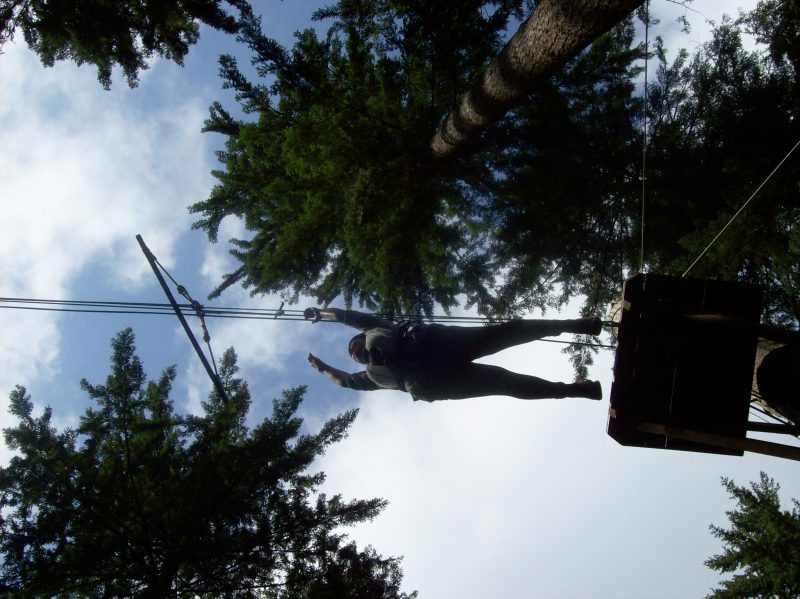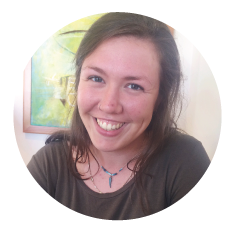By Jenna Spowart
Words are a weapon. Words are medicine. Words can be cruel. Words can be beautiful. The power of language is a gift and a tool entrusted to humanity, and it took a lead role in many of the lessons I learned at this year’s Looking Glass Summer Camp. My head, once filled by constant noise, was quieted by the stillness and sacredness of camp. Space once filled by my own wild attempts to make sense of life was replaced with clarity and truth by those who recognized my humanness.
As I drove down the long and winding dirt road to Loon Lake (this was my first time at camp), my body was in panic mode. My palms were sweaty, heart raced, my stomach upset. My mind, though, was calm. I looked forward to the week, already daydreaming about what was to come. It was as if my mind and body did not belong together, constantly at war and arguing about what this week would be all about. Would camp be triggering or would it bring some of the healing and routine that I’d forgotten how to prioritize? I am pleased to report that it was the latter.
Even though I had worried relentlessly about being one of the oldest campers, about whether or not I really needed this week at camp, and constantly questioned how much personal growth was possible in such a short period of time, I arrived at camp and instantly felt waves of peace wash over me. This was a safe space, with safe people. Nerves lingered, but my guard came crashing down.
It wasn’t long before the destructive voice in my head confronted me at dinner that first night. I quickly realized that camp as a “safe space” didn’t mean this week would be easy. It meant that I would be supported and loved as I moved through everything from art projects to the high ropes course, from forest adventures to yoga on the dock, and from overwhelming emotions to sitting in discomfort. The destructive part of my mind took a swing at me immediately, and with force. I was bombarded with a silent string of doubts and questions.
Why are you struggling with dinner? Are you sure you’re struggling? Look at others around you, they’re probably having a harder time than you. You’re just doing this for attention. You can function in daily life; you don’t need meal support. Get over it.
Completely overwhelmed, I sat eating dinner and simultaneously wondering how I would endure the week. I was caught off guard by these thoughts that weren’t about the food itself. Instead they had peeled back a few layers and attacked my doubts and emotional triggers. I didn’t realize it then, but even by sitting in the dining hall with other campers and staff, I was already taking a stand to this bully in my head and isolating destruction itself. Without the distractions of my phone, homework, and the stresses of daily life, I couldn’t help but hear these negative thoughts, but with the support all around me, I couldn’t help but do something about it. If words are powerful, then I could not afford to listen to lies. The magic of camp, having faith that I would catch on eventually, did not wait to be noticed before weaving itself in and throughout each moment. Tough meals and emotional conversations didn’t end, but I became far more resilient. I was reminded that everything I needed was already inside of me. Tears and laughter became increasingly cathartic, and I welcomed both.
Days at camp seemed to last forever and slip away just as quickly. There is something indescribably divine about spending time in nature and being fully present with other people who accept you just as you are. I remembered how much I love canoeing, and yoga, and connecting with others on such a genuine level. I realized it had been years since I allowed myself to take up this much emotional and spiritual space. Whether I created space for myself, or someone else held it for me, there was room for every part of me. The cringe-worthy memories, the much-regretted past, the victories, the tsunami tears, honesty, fear, laughter, dreams for the future, and who I am in the moment. What I am most grateful for, however, is the tribe surrounding me. I didn’t celebrate anything alone; there were always others cheering right beside me. In the space where I unknowingly judged myself or held any skewed perception of recovery, someone else was there to reframe it for me. Here are some of my favourite gems from the week:
It was suggested to me, metaphorically speaking, that I end this chapter and start a whole new book. I cannot move forward with who I was yesterday. I cannot strive to help the person I was five years ago. I need to start with the person I am today, because she is worthy of love and growth and recovery.
I was encouraged to move forward without a definition of recovery, and with openness to ambiguity. This is scary, but so is a life searching for answers when there aren’t any.
Through many tearful conversations I learned that I need to forgive myself. As I work on mending certain relationships in my life, I must not show up as anything more or less than human. This means that I deserve the same amount of grace that everyone else does, no matter how much I’ve received in the past.
One of my favorite phrases repeated through the week was from one leader who would always say “Guess what day it is?”. The answer, we quickly learned, was, “It’s a great day to be alive!” Although it was said multiple times most days, I didn’t appreciate it until about day four of camp. At first it just seemed like a silly, cheesy little statement. But as it was continually repeated, I realized that maybe I ought to pay attention. It became a necessary part of each day, a joyful truth spoken into my life. I would have never learned to appreciate it if I’d only heard it one or two times.
They say that when you are learning a new language, you have a better chance of becoming fluent if you are fully immersed in it. Time in the classroom is necessary. Dictionaries, worksheets, and references are helpful. But to be immersed in a language, in a culture, is what solidifies what was once foreign. My week at camp this summer was exactly that. Immersion in a language I was forgetting how to speak. I shared my heart and I was honest, but I struggled when I couldn’t find the words to explain my way through the tough moments. Instead, I had to feel my way through and let others do the talking. They spoke the language of love. Self love. Forgiveness. A lack of judgement. Jumping in the lake, just because. Holding space. Crying. Bravery. Facing fears. Speaking up. Listening. Being. Recovering. Living. Summer camp is not forever, but I will hold it close to my heart for the rest of my life.

Jenna is a poet, musician, and a lover of deep connection with others. She recently graduated from Trinity Western University with a degree in Psychology, and is passionate about supporting others along their own unique paths of recovery and healing. This desire stems from Jenna’s gratitude toward those who walk alongside her in her own recovery. Jenna finds comfort in vanilla chamomile tea, walking barefoot outdoors, and hugs.